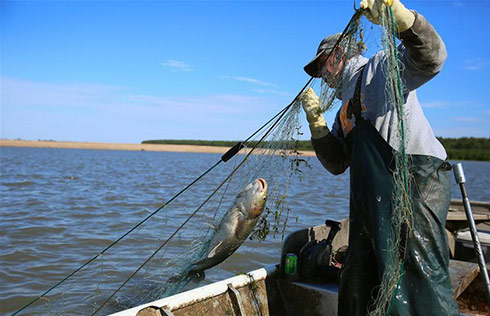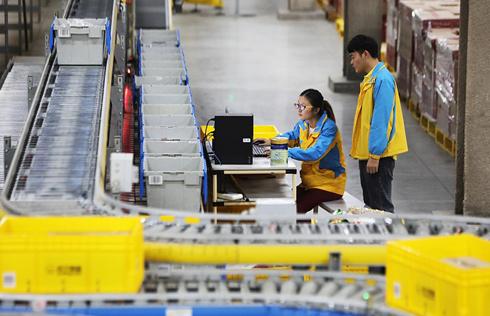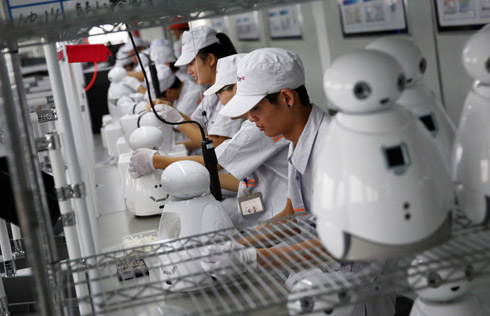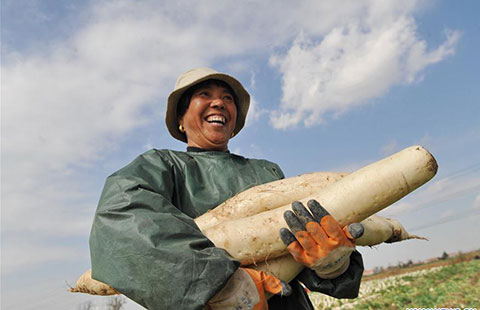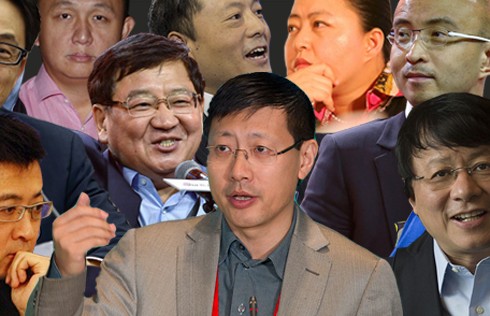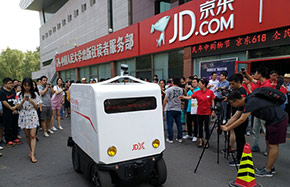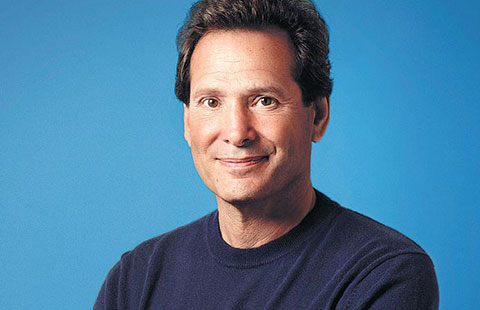Bill Gates' China trips inspire confidence about outcome of Trump's visit: Chinese-American business leader
BEIJING - Microsoft co-founder Bill Gates' frequent trips to China, much before US President Donald Trump's first official visit which began today, have given Tai-Yin Huang, former chairperson of the East Penn Chinese-American Chamber of Commerce, confidence that the two countries will extend their collaboration and cooperation.
Huang, who arrived in the United States in 1991 as a foreign student and subsequently became a naturalized American citizen, talks of Gates' Washington-based nuclear power company TerraPower's partnership with China National Nuclear Corporation (CNNC) as the reason for her confidence.
In 2015, the two companies signed an agreement to collaborate on building an advanced nuclear reactor with enhanced safety features that will be marketed commercially worldwide.
"The idea is to be very low cost, very safe and generate very little waste," Gates said during a visit in 2011. "All these new designs are going to be incredibly safe."
It was an assurance to allay fears of a nuclear holocaust following the meltdown of Japan's Fukushima Daiichi reactor after the 2011 tsunami and earthquakes.
Gates visiting China to talk about collaboration between his company and China says a lot about China's collaboration and investment potential, according to Huang. "Microsoft has a lot of money and a lot of say," she said.
And Gates has been lauding China's energy innovation. "China already is one of the world leaders in renewable energy," he said, noting that China's massive investment in renewable power sources will "pay off handsomely" for the country and as a "long-term global business opportunity."
There are several global business partnerships in the pipeline already, including more in the nuclear power sector. CNNC has another agreement with Canada-based SNC-Lavalin and Shanghai Electric Group for a joint venture that will develop, build and market an advanced fuel reactor.
A third prominent partnership has seen American Oak Ridge National Laboratory jointly researching advanced reactors with the Shanghai Institute of Applied Physics.
The US authorities are aware of the benefits of working with China. "Energy collaboration between the United States and China is significant to global energy security, climate change, and nuclear security issues, and is a key priority for both countries," the US Department of Energy' s Office of International Affairs said on its website.
The two governments work together bilaterally on several clean energy initiatives such as the US-China Clean Energy Research Center (CERC), and also in multilateral forums like the International Energy Agency and the International Forum for Nuclear Energy Cooperation.
CERC matches top researchers from both countries for fast development of critical technologies for clean energy in the United States and China so that the carbon footprints and the threat of climate change are reduced. This year, the collaboration launched work to improve the efficiency of medium- and heavy-duty trucks to achieve substantial oil savings.
Despite such cooperative projects, there have been some changes in the United States with the Trump administration distancing itself from the global initiative to fight the effects of climate change and global warming, Huang noted. Many US alternate energy companies have suffered cuts in their federal funding, which was bound to affect their work.
In China, the government has been pursuing clean energy intently. "I've had the opportunity to meet several times with President Xi (Jinping) and am encouraged by his commitment -- and by his leadership at the Paris Climate talks," Gates said in his talk at Peking University in March this year. "China was one of the 22 countries that committed to doubling their investments in clean energy innovation over the next five years."
Gates said he was also working with Alibaba founder Jack Ma and other investors, who had committed to put in $1 billion for the development of early stage energy technology, "so we can move the best ideas from the research lab to the marketplace."
Huang, whose interest lies in green energy, sees huge potential for Sino-US energy collaboration. She is the founder of a green startup, Andromeda LED Lighting. "If you look at the American household, a lot of people are still using the traditional fluorescent lights. There's potential there," she said.
Noting that both China and the United States have a lot of say in the world economic order, Huang said the "wisest thing for both would be to have a good partnership."
During Trump's election campaign, there was a lot of anti-Chinese propaganda, she recalled. So she was glad to see President Xi Jinping receiving a very warm reception from Trump when he visited the United States in April.
Speaking of Trump's visit to China, Huang said it's great for strengthening bilateral ties. "I think the United States really wants to have China as a good friend because of the valuable economic ties. I think President Trump's mind is more on the economy."
Huang has a pragmatic assessment of American investment in China and vice versa.
China has one wrinkle: "In China labor costs have gone up in recent years. So they are losing their competitiveness regarding labor." she pointed out.
On the other hand, the factors that speak for China are political and policy stability as well as security.
Regarding the United States as an investment destination, she downplayed the specter of the investigation by former FBI director Robert Mueller into allegations of Russian interference in the presidential elections, with some predicting Trump will be impeached.
"People are waiting to see what unfolds," she said. "There's a lot of things still up in the air."
She also refused to be cast down by the rising violence in the United States in the forms of racial riots, terror attacks and mass shootings, which have been increasing in recent years.
"Temporarily it could have some effect on people's mindsets. People would think twice about going to or investing in the US, thinking, is it a safe place to go?" she conceded.
"But then when you compare the situation to what's happening in England, in Europe, it seems that America is still a safer place," she added.




